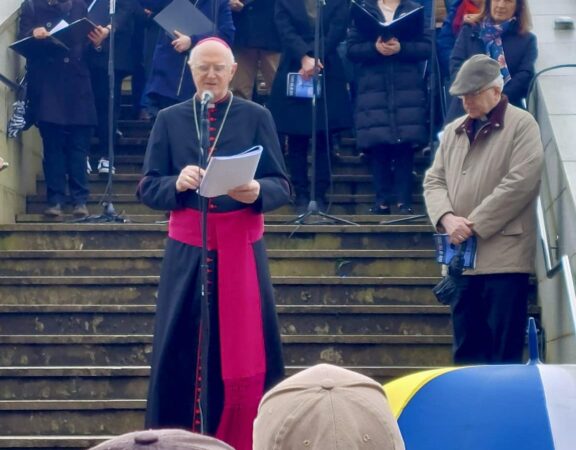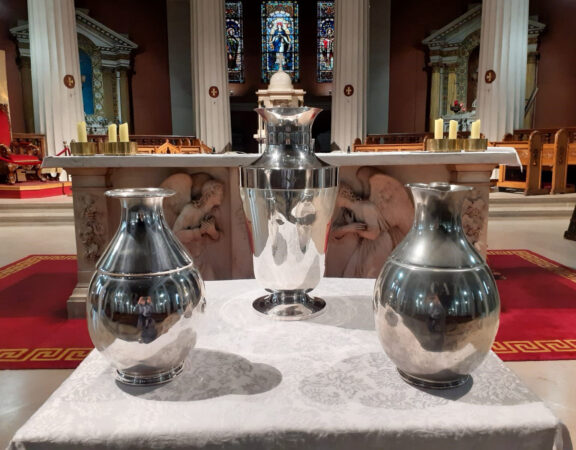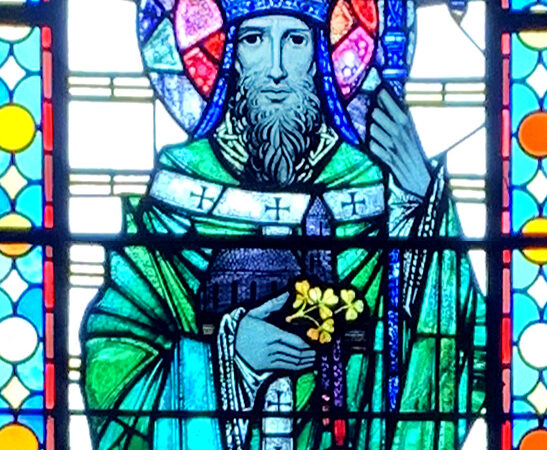DIVINE MERCY CONFERENCE 2018
Homily notes of Most Rev. Diarmuid Martin Archbishop of Dublin,
RDS Dublin, 17 February 2018
“This afternoon, we celebrate the Great Mercy of our God. In prayer and reflection, we deepen our understanding that God is love and that being a follower of Jesus is to allow that love to come into our hearts – to bring us freedom, freedom from our sinfulness, freedom from the many burdens that weigh down upon us, freedom from self-centeredness and thus freedom to love.
Look at how the tax collector Levi answered the call of Jesus. He answers instantly. Answering the call to follow Jesus is never a process of bargaining or putting down our own price or conditions or terms for following him. Accepting the call of Jesus does not open the door to a secure, programmed life. It is rather a unique act of trust and commitment in the face of many unknowns and challenges. In the midst of unknowns, trials and uncertainties and failures, we know that we can always place our trust in God’s mercy.
The call of Levi in today’s Gospel is an extraordinary example. In an instant, Levi is transformed. A tax collector sitting at the custom station is suddenly whisked into a radically different world and he becomes a disciple of Jesus.
The call to ministry and service in the Church is a call to total change of life. Levi abandoned everything to follow Jesus. Very soon, however we find him back with his tax-collector and sinner friends holding a great party in his house. Jesus and his disciples join. They too join with Levi in the company of tax collectors and sinners. Jesus and his disciples do not feel out of place in such company, much to the disgust and scandal of the Pharisees and the scribes.
It is true that the call to conversion asks one to leave everything, but that leaving does not mean a retreat into an idyllic world of safe isolation. It does not in any way indicate that our coming away from the world means that we create for ourselves an unreal world in which we feel ourselves comfortably surrounded by just the virtuous or even more worrying by those who proclaim themselves virtuous.
Jesus lived uncontaminated by the world, but he lived fully in the midst of the world of his time. He did not simply preach conversion from a safe distance. Not only did he just talk to the publicans and sinners, he shared table fellowship with them. Jesus was called a friend of sinners.
Our hope is not based on our own merits, but our hope is in the mercy of God revealed in the life and death of Jesus Christ who came to call not the virtuous, but sinners to penance. Jesus came to call sinners; to show mercy to those who fall. He was and is prepared to leave aside the ninety-nine and go out of his way to seek out the one who is lost. It is consolation to us in our weakness to know that even if we fail, even if we fall deeply into sinfulness, Jesus never abandons us. He is waiting for us to return.
Leaving the ninety-nine is not an unjust disregard for those who are faithful. It is a source of hope at those times when things seem to be drifting in the wrong direction in our lives and in our society. There is no reason for us ever to lose hope, since we depend not on our own merits but on the saving power and mercy of the Lord.
Leaving the ninety-nine is not an unjust disregard for those who are faithful, but precisely a challenge to those who are faithful to try in our lives even more than ever to be like Jesus and to witness in our lives to how Jesus lived and loved.
Discipleship cannot be built on a way of life that seeks just personal praise or approval or satisfaction. There can nothing self-centred or self-serving in discipleship. If anything, it is the opposite.
Jesus calls us and Jesus will sustain us in our call. If we faithfully and selflessly follow our calling, the Lord will be with us, reviving our spirits in times of distress, just as we heard in the first reading: giving us relief, giving strength to our bones, making our faith fruitful like a well-watered garden. Jesus will come to us, to use the words of that Old Testament reading, as a “breach-mender” and a “restorer of ruined houses”.
The Divine Mercy we celebrate is the mercy that God showed to us in his Son Jesus who came to reveal God’s love by giving himself. Simply looking to be loved can easily end up in becoming self-centred and narcissistic. The proof of the fact that we understand God’s love is when we become, through experiencing his love, ourselves loving people.
We pray for all those who find themselves in difficult situations, that they will find trust in the mercy of God and will persevere in goodness, especially in the protection of life. May they never feel abandoned. May those who face such challenges experience us – the community of believers in Jesus Christ – as men and women of compassion who are there to support and encourage them.
Let us join then with Jesus as we celebrate in the Eucharist the memorial of his sacrifice of love. Let us gather around the Lord’s Table and be nourished by that same body and blood which was given up for us. Let us go out from here to construct in the world around us the table of charity, the table of God’s love in the midst of a harsh world, so that that Divine Love and Mercy can become real support and healing. May Mary, who stood beside her Son at the Cross, be with us at our side.”









